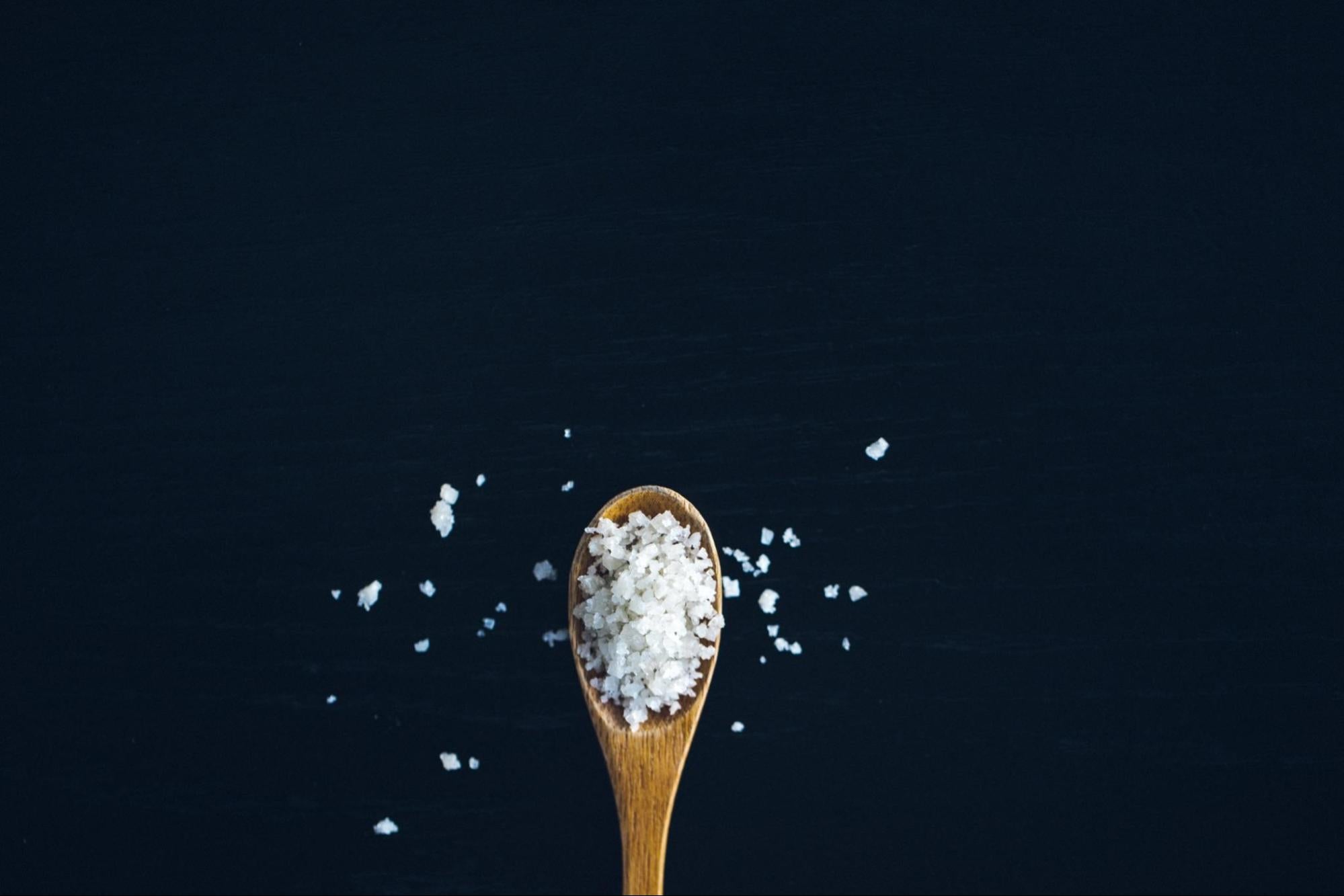It is safe to say that salt gets a bad rap when it comes to fitness, diet and nutrition. But does too much salt actually cause muscle pain? The answer may surprise you! While most people associate salt with high blood pressure and other health problems, recent studies have revealed some interesting facts about the role of sodium in our bodies. We’re here today to dive into this topic and explore how too much salt can affect your muscle performance and ability.
The Basics of Salt and Its Role in the Body
Salt, also known as sodium chloride, is an essential mineral for all living organisms. It’s not only necessary for our bodies to function correctly, but it can also enhance the flavor of your favorite dishes.
Related Link: Getting the Sustained Energy You Want
Types of Salt

Salt comes in many forms including table salt, sea salt, Himalayan pink salt, rock salt, and kosher salt. Table salt is the most common form of salt and has been heavily processed with anti-caking agents and additives like iodine to prevent goiter. Sea salt is produced by evaporating seawater and contains trace amounts of minerals like magnesium and calcium which give it a slightly more complex flavor than table salt. Himalayan pink salt is mined from ancient sea beds in Pakistan and contains trace minerals which give it its signature pink color. Rock salt is formed when underground deposits are mined from the earth while kosher salts are larger grained versions of table or sea salts used mainly for seasoning foods before cooking.
Sodium vs Chloride
The most common form of salt is table salt (NaCl), which contains both sodium and chloride ions. Sodium is an electrolyte that helps maintain healthy water levels in our bodies, while chloride helps create hydrochloric acid in our stomachs—which is essential for proper digestion. While they are usually found together in foods (like table salt or sea salt) or supplements, it’s important to understand the difference between them.
Do you have any questions about our performance-optimizing gummies? Contact us today!
Health Benefits
Salt plays an important role in maintaining good health. It helps regulate fluids and electrolytes in your body which helps keep your muscles functioning properly. It also helps regulate blood sugar levels as well as other bodily functions like digestion and nerve transmission. In addition to this, consuming enough sodium helps reduce stress levels by controlling cortisol levels in the body which can have a positive effect on mood regulation and mental clarity.
Uses for Salt
In addition to providing essential nutrients for our bodies, there are other uses for this essential mineral as well. One of the most popular uses for rock or Kosher salts is creating a homemade exfoliating scrub! Simply mix equal parts coarsely ground rock or Kosher salts with your favorite oil (coconut oil works great) until you achieve a paste-like consistency then apply directly to skin using circular motions to buff away dead skin cells leaving you feeling soft and renewed! Another use for this wonderful mineral is creating bath soaks; simply add some Epsom salts or Himalayan pink salts to hot bathwater along with your favorite essential oils to create an at-home spa experience right in your own bathroom!
What is Too Much Salt Consumption and How Can it Affect You
The recommended daily sodium intake for adults aged 19-50 is 2,300 milligrams (mg). However, the American Heart Association suggests that most Americans should consume no more than 1,500 mg per day. Consuming more than this amount can lead to high blood pressure and an increased risk of heart disease.
How Too Much Salt Can Cause Muscle Pain

Eating too much salt causes your body to retain fluid which can lead to bloating and weight gain. This fluid retention also puts extra pressure on the muscles in your body, causing them to become inflamed and painful. Additionally, when your body retains excess sodium it can cause dehydration which can lead to cramping and muscle tension. This can cause fatigue, tightness and soreness as well as hinder circulation throughout the body. Depending on how much extra salt you’re taking in and how long it lasts, you may also experience cramps or spasms as well as pain that comes with movement or exercise.
When Should You See A Doctor?
If any of these symptoms are severe enough that they interfere with your daily life or physical activities, then it’s time to see a doctor about them. They will be able to help diagnose what is going on and provide recommendations for how to address it—which might include dietary changes or medications depending on your situation—as well as point out other factors that could be contributing to your pain such as age-related wear-and-tear or poor posture habits. It pays to get checked out so that you know exactly what’s going on and can take action accordingly!
Tips on Reducing Your Salt Intake to Avoid Muscle Pain
The best way to reduce your salt intake is by reducing processed foods in your diet. Processed foods often contain high amounts of sodium preservatives which can quickly add up if you are not careful about what you eat. Instead of processed foods try opting for fresh fruits and vegetables as well as low sodium alternatives such as unsalted nuts or seeds as snacks throughout the day. Additionally opt for lean proteins like chicken or fish over red meat which often contains added sodium preservatives.
Foods That Contain High Amounts of Sodium and How to Find Alternatives
It’s important to be aware of which foods contain large amounts of sodium so that you know what to avoid or to find low-sodium alternatives when grocery shopping. Some common culprits include canned soups, condiments such as soy sauce or ketchup, frozen meals, deli meats like bacon or ham, cheese, pickles, salted nuts and chips as well as fast food items such as burgers or fries. If these are staples in your diet try looking for reduced-sodium options at the grocery store or look into making homemade versions instead!
Looking for something to improve your gym performance? Put your trust in HUMBLEROOTS and check out our performance gummies!
Adding Salt To Your Diet
Salt plays an important role in keeping us healthy by helping us regulate water levels in our bodies and aiding digestion through its chloride content. While there are different types available on the market today, it’s important not to overdo it when adding it to food or taking it as a supplement—the World Health Organization recommends limiting our daily intake of sodium-based salts like table or sea salt to 2 grams per day for adults over 18 years old (though this recommendation may vary depending on age). So next time you reach for that shaker at dinner time remember that moderation is key!
Related Link: The HUMBLEROOTS Performance Story



